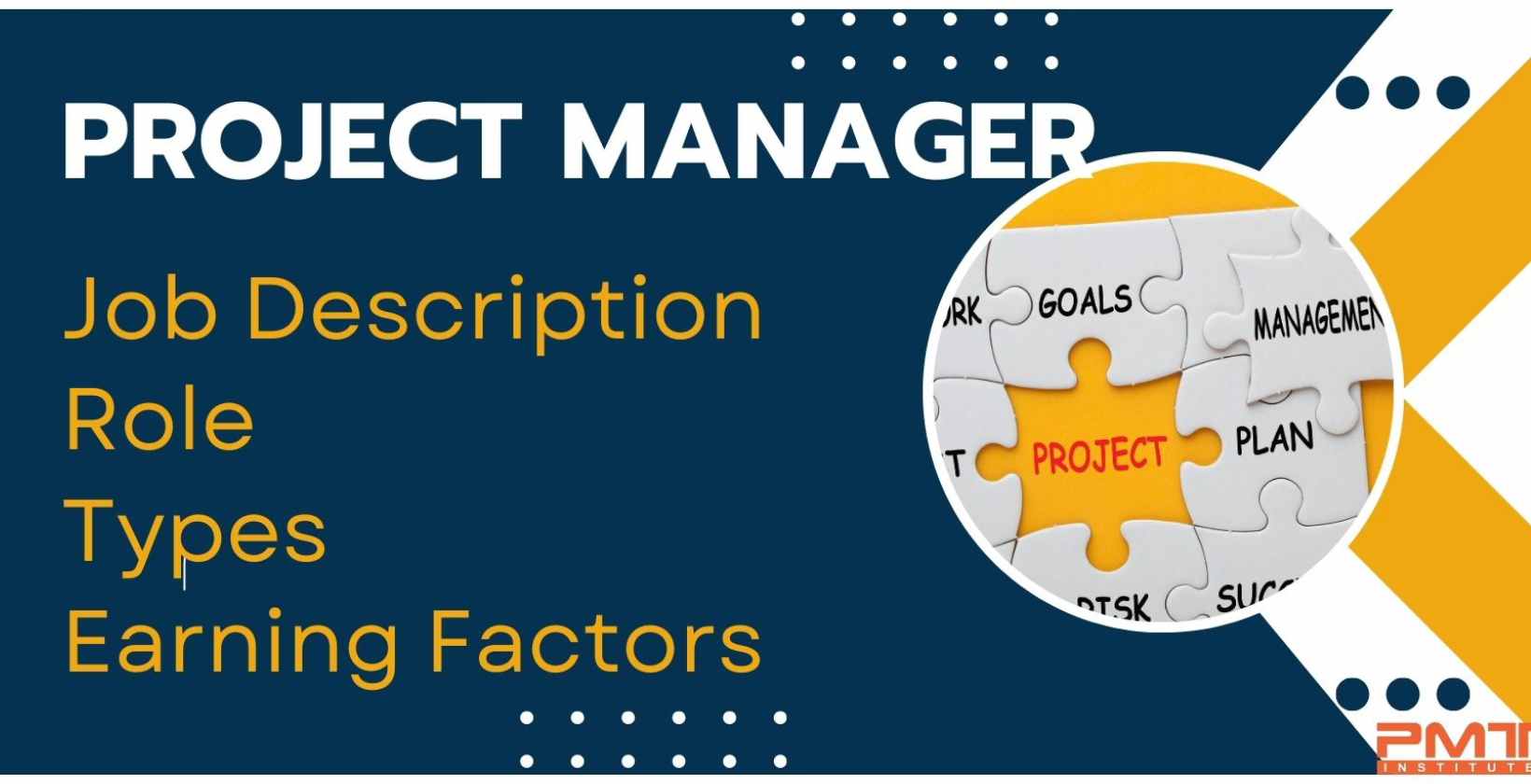What Is a Project Manager? A Career Job Guide
What Is a Project Manager? A Career Job Guide – A project manager is a professional responsible for planning, organizing, and overseeing projects across various industries. This role involves managing resources, budgets, and schedules to ensure projects are completed efficiently and on time. Project managers are at the core of every successful project, coordinating teams and maintaining communication with stakeholders to meet defined goals.
Be it a marketing campaign, a construction project, or software development, the project manager’s role is pivotal to achieving desired outcomes. in today’s dynamic work environment, project managers are in high demand across multiple sectors. The profession is growing at a faster rate than many others, reflecting the increasing complexity of organizational operations.
Mastering project management skills, professionals can access opportunities in industries ranging from technology to healthcare, construction, and beyond. For those considering a career in project management, understanding the role’s responsibilities and requirements is essential for success.
Anyone who is ready to take the first step in project management, should consider enrolling in professional certification programs like Google’s Project Management Professional Certificate. These programs provide foundational knowledge and skills to help you start or advance your career in project management.
What Does a Project Manager Do? Tasks and Responsibilities
Project managers oversee the entire lifecycle of a project, from initiation to closure. This includes structuring the project scope, pacing objectives, and creating detailed plans to lead the team. A project manager ensures that all tasks are completed on time and within the allocated period and budget.
Project Managers also manage resources, including team members, tools, and materials, to ensure smooth execution. A key part of their job is to document progress and communicate updates to stakeholders, ensuring transparency throughout the project.
Another important responsibility is risk assessment and troubleshooting. Project managers identify potential challenges early on and develop strategies to mitigate them. Anticipating risks, they can avoid delays and keep the project on track. Quality assurance is another important aspect of the role, as project managers ensure that deliverables meet the required standards and client expectations.
This often involves working closely with team members to address issues and implement solutions effectively. The diverse nature of project management tasks means no two days are the same. One day might involve conducting team meetings and reallocating resources, while another could focus on presenting progress reports to stakeholders.
This variety makes the role both challenging and rewarding, offering opportunities to develop a wide range of skills.
Essential Skills for Project Management
To excel as a project manager, you need a combination of technical and interpersonal skills. Leadership is one of the most important attributes, as you will be leading a team toward achieving specific goals. Effective communication is equally important, as project managers act as the primary point of contact for team members, clients, and stakeholders.
Organizational skills are necessary for managing multiple tasks and priorities simultaneously. A project manager must be adept at creating schedules, allocating resources, and monitoring progress to ensure the project stays on track. Deep and creative thinking is another key skill, as it enables a project manager to analyze situations, identify potential problems, and develop effective solutions.
Lastly, a positive attitude and a sense of humor can go a long way in maintaining team morale and reducing stress. Project management often involves tight deadlines and high-pressure situations, so the ability to stay calm and motivate your team is invaluable. By honing these skills, you can build a strong foundation for a successful career in project management.
Project Management Methodologies
Project management methodologies provide structured approaches to planning and executing projects. Agile, Scrum, and Waterfall are some of the most commonly used methods. Agile focuses on flexibility and iterative progress, making it ideal for industries like software development.
Scrum, a subset of Agile, emphasizes teamwork and short development cycles, known as sprints, to achieve quick and efficient results. Lean methodology, developed by Toyota, aims to maximize value while minimizing waste. It’s widely used in manufacturing but can also be applied to other industries.
Kanban is another popular method that uses visual boards to track progress and improve workflow. Each methodology has its strengths and is suited to specific types of projects and industries. Selecting the right methodology depends on the project’s requirements and the organization’s goals.
For instance, Waterfall is a linear approach suitable for projects with well-defined stages, while Agile is better for projects requiring adaptability. Understanding these methodologies allows project managers to select the best approach for each project, ensuring efficiency and effectiveness.
Project Management Careers
Project management is a versatile career path with opportunities in various industries. From construction and architecture to healthcare, technology, and government, project managers is saddled with the responsibility of bringing ideas to life. The skills you develop as a project manager are highly transferable, allowing you to explore different fields and advance your career.
Some common roles in project management include IT project manager, construction project manager, and healthcare project manager. There are also specialized roles like Scrum master, project analyst, and project management consultant. Each role requires a unique set of skills and offers different challenges and rewards, making it possible to find a niche that aligns with your interests and strengths.
The demand for project managers continues to grow, driven by the increasing complexity of projects and the need for skilled professionals to lead them. Pursuing a career in project management, you can leverage your leadership, problem-solving, and organizational skills to make a meaningful impact in any industry.
Project Manager Salary: How Much Can You Earn?
Project managers basically earn competitive salaries, reflecting the importance of their role in organizational success. According to the Project Management Institute (PMI), the median annual salary for project managers across all industries in the United States is $120,000. Glassdoor reports an average salary of $89,764, while the US Bureau of Labor Statistics states that project management specialists earn an average of $98,580 annually.
The average monthly income for a project manager in Nairobi, Kenya, is KES 142,500, with an expected monthly compensation of KES 156,667. While a project manager in Nigeria basically makes about ₦2,927,745 a year, or about ₦333,958 a month. Likewise, in Uganda, the monthly salary of a project manager ranges from UGX 3,800,000 to UGX 8,330,000.
Depending on their level of expertise, project managers in the Netherlands might earn anywhere from €52,290 and €156,870 a year. while In Germany, a project manager basically makes between €67,800 and €72,500 annually. In Germany, project managers can also earn between €45,000 and €95,000 annually.
However, the project manager’s experience, abilities, location, and employer can all affect their pay. Factors such as industry, location, and experience level can significantly influence earning potential. These figures highlight the financial benefits of pursuing a career in project management. Additionally, senior roles and specialized positions often come with higher salaries and additional perks.
Investing in certifications and advanced education can further enhance your earning potential. Credentials like the Project Management Professional (PMP) certification demonstrate your expertise and commitment to the field, making you a more competitive candidate for high-paying roles.
Project Management Job Outlook
The job outlook for project managers is highly promising, with employers expected to create 2.3 million new project management-oriented roles annually through 2030. Industries such as healthcare, finance, and technology are experiencing significant growth, driving the demand for skilled project managers.
This trend underscores the importance of project management as a critical function in modern organizations. As businesses continue to innovate and expand, the need for professionals who can oversee complex projects will only increase. This growth presents opportunities for both entry-level and experienced project managers to advance their careers.
Staying up-to-date with industry trends and continuously improving your skills, you can position yourself for long-term success in this field. The versatility of project management also allows professionals to explore diverse roles and industries. being interested in managing large-scale construction projects or leading a team in a tech startup, the possibilities are endless.
You May Also Check:
How to Get a Job as a Computer Technician: 10 Tips
Jobs With No Qualifications Needed Near You (January 2025)
Online jobs that pay hourly in Kenya
Digital Marketing Jobs in Kenya 2024/2025
Project Manager Qualifications
To become a project manager, you basically need a combination of education and experience. A bachelor’s degree is often the minimum requirement, with many professionals holding degrees in business, computer science, or industry-specific fields. Advanced degrees, such as a Master of Business Administration (MBA), can further enhance your qualifications and career prospects.
Certifications are another important aspect of project manager qualifications. The Project Management Professional (PMP) certification is one of the most recognized credentials in the field. It demonstrates your knowledge and expertise, making you a more competitive candidate for high-level roles.
Entry-level certifications like the Certified Associate in Project Management (CAPM) are also available for those just starting their careers. Gaining practical experience is essential for developing the skills needed to succeed as a project manager. Internships, volunteer opportunities, and entry-level roles can provide valuable hands-on experience, helping you build a strong foundation for your career.
Frequently Asked Questions
What is a project manager a career guide?
Project managers are the ones responsible for ensuring the entire team understands the needs for certain projects or tasks. They take a leadership role on the team, work across multiple groups within the organization, and often utilize software to keep everything on track.
What is the job role of a project manager?
Project managers are responsible for planning, organizing, and directing the completion of specific projects for an organization while ensuring these projects are on time, on budget, and within scope. Their roles encompass managing resources, communicating with stakeholders, and ensuring quality throughout the project lifecycle.
What kind of jobs do project managers do?
Project managers plan, organize, and direct company initiatives. They oversee projects from inception to completion and help shape the organizational trajectory of companies across a wide variety of industries.
Next Steps to Becoming a Project Manager
If you are considering a career in project management, the first step is to assess your interests and skills. Determine which industries align with your goals and explore educational programs that can help you build the necessary knowledge.
Enrolling in certification courses, such as Google’s Project Management Professional Certificate, is a great way to gain practical skills and enhance your resume. Networking is another important aspect of building a career in project management. Connect with professionals in the field through industry events, online forums, and social media platforms.
These connections can provide valuable insights and open doors to new opportunities. Additionally, staying informed about industry trends and advancements will help you remain competitive in the job market.
Taking these steps, you can embark on a rewarding career in project management. With the right combination of education, experience, and determination, you can achieve success and make a meaningful impact in any industry. Best of luck.!




![Online jobs that pay hourly in Kenya [Apply now]](https://www.hnxb.org/wp-content/uploads/2025/01/Online-jobs-that-pay-hourly-in-Kenya-c-768x432.png)


